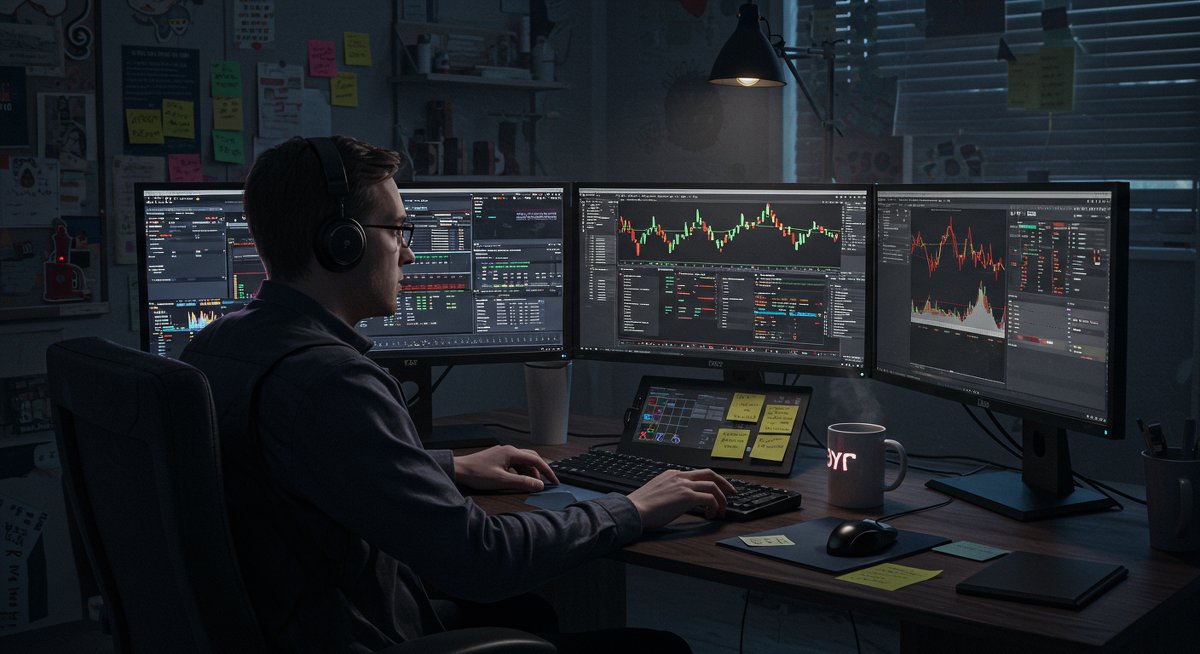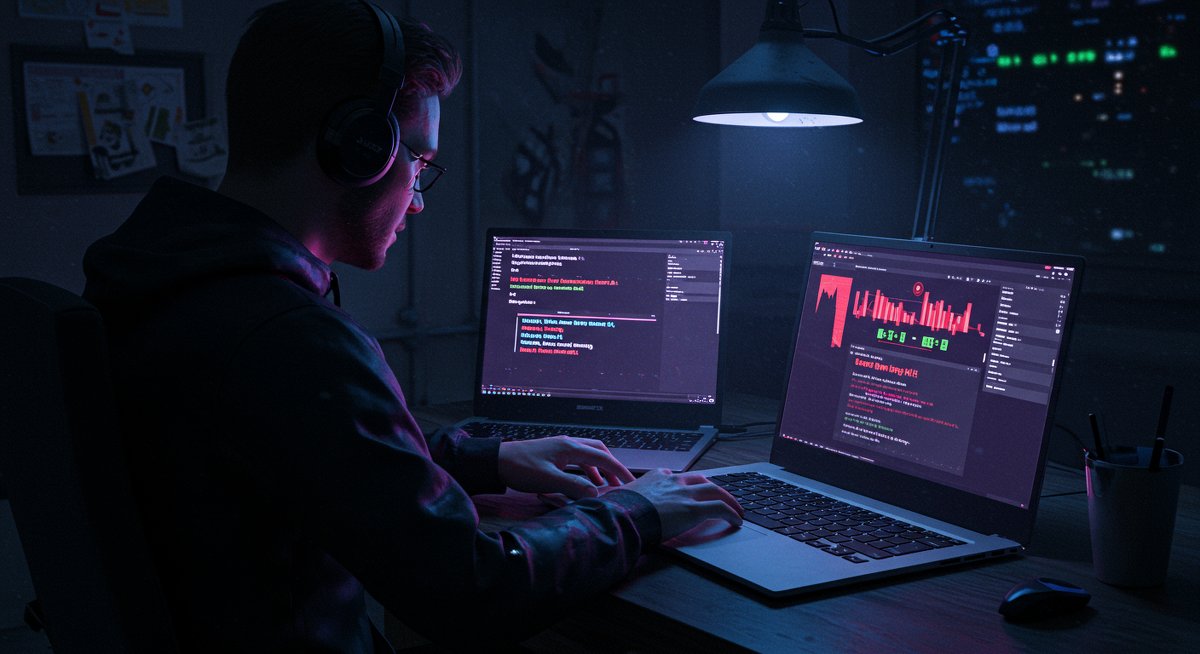That Sinking Feeling
So, I was scrolling through r/CryptoCurrency the other day, and a post stopped me dead in my tracks. A guy shared a story about almost losing his entire crypto portfolio – a portfolio built up over eight long years. He went to recover his wallet, ready to take some profits, only to find… nothing. Zero. Zilch. That gut-wrenching feeling of watching years of hard work vanish in an instant? I can only imagine. The post immediately reminded me of when I sent ETH to a smart contract that rejected incoming transfers. This guy's story is way worse though.
He'd entered his 24-word seed phrase into his Trezor, expecting to see his life-changing gains. Instead, he was greeted with an empty wallet. He tried again. Still nothing. He even got his wife to double-check, thinking he was losing his mind. Same result. Panic started to set in, as it would for anyone. He even tried using Trust Wallet, thinking it was a Trezor issue, but the result was the same.

The worst part? This wasn't just some small change. This was a significant amount of money, the kind that could truly change their lives. He described the feeling as an out-of-body experience, watching himself sweat and shake, feeling like he was about to be sick. He was about to lose everything.
Then, after a frantic Google search, the truth hit him: the passphrase. The dreaded 25th word. It turns out that all those years ago when he set up his Trezor, he didn't fully grasp the importance of the passphrase. He thought it was just a way to hide a wallet within the Trezor interface, not a critical component for recovering his funds. He thought the 24-word seed was enough. Luckily, he found it.
Decoding the Passphrase Puzzle
Here's the thing: a lot of people, especially those relatively new to crypto, don't fully understand the role of a passphrase in securing their wallets. They treat it as an optional extra, something you can skip without consequence. That's a dangerous misconception. This guy almost paid a very heavy price for it. This Reddit user was about to throw up but I am sure there are others who have actually lost funds. I've seen stories in the comments of similar experiences.
A passphrase, in essence, acts as a 25th word to your seed phrase. It's an additional layer of security that drastically increases the complexity of your wallet. Without it, even if someone has your 24-word seed, they can't access your funds. I had a friend set up a wallet and then he forgot his passphrase. I warned him of this potential issue. The seed phrase alone is not enough.
Think of it like this: your 24-word seed is the key to your house, but the passphrase is the code to the alarm system. Someone might have the key, but without the code, they can't get inside without raising the alarm.
The key takeaway here is that your 24-word seed phrase only unlocks a specific wallet. If you used a passphrase when you set up your wallet, that passphrase is integral to accessing that specific wallet. Without it, you're essentially creating a completely different wallet, which will appear empty.
What This Means for Your Crypto Stash
So, what does all this mean for you? Well, if you're using a hardware wallet like a Trezor or Ledger, or even a software wallet that supports passphrases, you need to take this seriously. It isn't an optional add-on.
First and foremost, if you are using a passphrase, make absolutely sure you have it stored somewhere safe and secure. Don't just keep it in your head, and definitely don't store it in plain text on your computer or phone. Consider using a password manager, a physical notebook stored in a secure location, or even a metal backup solution. If you ever lose your passphrase, you lose access to your funds. There is no "forgot password" button in crypto. I'd recommend a hardware wallet, personally. But, I'm biased.
Secondly, if you're not using a passphrase, you might want to consider setting one up. It adds a significant layer of security to your wallet, making it much more difficult for someone to compromise your funds. However, only do this if you are absolutely certain you can manage the passphrase securely. If you're likely to forget it or lose it, it's probably better to stick with just the 24-word seed phrase. I think many users want to believe they can remember it but it's best to just write it down.
Finally, take this as a reminder to regularly test your recovery process. Don't just assume that your seed phrase and passphrase will work when you need them. Actually go through the process of recovering your wallet on a test device to make sure you know what you're doing and that everything is working as expected. I wish I tested mine more regularly.
The Elephant in the Room: Risk
Let's be real, crypto is risky enough as it is. We're dealing with volatile assets, complex technologies, and a constantly evolving landscape. The last thing you need is to add unnecessary risk to the equation by neglecting basic security practices.
The story above highlights a critical risk: the risk of human error. We're all human, and we all make mistakes. We forget things, we get distracted, and we sometimes cut corners. But in the world of crypto, even a small mistake can have devastating consequences.
That's why it's so important to take a proactive approach to security. Don't just assume that your funds are safe. Actively take steps to protect them. Use strong passwords, enable two-factor authentication, store your seed phrase and passphrase securely, and be wary of phishing scams. I've had to change passwords due to security breaches more than once.
Another risk to consider is the risk of physical theft. If someone gains access to your hardware wallet, they could potentially try to brute-force your PIN or extract your seed phrase. That's why it's important to keep your hardware wallet in a safe place and to never leave it unattended. I would never store my hardware wallet in my office.
Finally, remember that even the most secure wallet is only as secure as the person using it. Be aware of the risks, take precautions, and stay vigilant.
Crypto Trading from Abroad: A Different Ballgame
Now, if you're trading crypto from outside the US, there's another layer of complexity to consider. Regulations, tax laws, and even the availability of certain exchanges can vary significantly from country to country. I'm in the US, and I've seen others get the short end of the stick trading elsewhere.
For example, some countries have strict rules about the types of crypto assets you can buy and sell, or the amount of crypto you can hold. Others have outright banned certain exchanges or activities. I heard a story of someone having all of their assets seized. It was pretty scary.
Tax laws are another major consideration. In some countries, crypto gains are taxed as income, while in others they're treated as capital gains. The tax rates can also vary significantly. Make sure you understand the tax implications of your crypto trading activities in your country of residence.
Then there's the issue of exchange availability. Not all exchanges are available in all countries. Some exchanges may restrict access based on your location, while others may simply not offer their services in your country. This is why it's important to do your research and choose an exchange that is reputable, secure, and available in your jurisdiction.
Also, be mindful of currency exchange rates and fees when trading crypto internationally. These can eat into your profits if you're not careful.
Doing It Right: A Step-by-Step Guide
Okay, so how do you actually put all this into practice? Let's break it down into a few simple steps:
Choose a reputable wallet: Whether you opt for a hardware wallet like a Trezor or Ledger, or a software wallet like Exodus, make sure you choose a wallet that is well-regarded in the crypto community and has a strong security track record. I'd recommend a hardware wallet for maximum security, but software wallets can be convenient for smaller amounts.
Set up your wallet securely: Follow the wallet's instructions carefully when setting it up. Pay close attention to the seed phrase and passphrase (if you choose to use one). Write them down on paper and store them in a safe place. Never store them digitally.

Enable two-factor authentication: This adds an extra layer of security to your wallet, requiring you to enter a code from your phone or another device in addition to your password.
Test your recovery process: Regularly test your recovery process to make sure you know what you're doing and that everything is working as expected. This is especially important if you're using a passphrase.
Stay informed: Keep up-to-date with the latest security threats and best practices in the crypto world. Follow reputable crypto news sources and security experts on social media.
Be careful: Be wary of phishing scams, fake websites, and other attempts to steal your crypto. Always double-check URLs and never click on suspicious links.
Diversify: Don't put all your eggs in one basket. Diversify your crypto holdings across multiple wallets and exchanges.
My Two Cents on Crypto Security
So, what's my take on all this? I think the Reddit post serves as a stark reminder that crypto security is not something to be taken lightly. It's not enough to just buy some crypto and hope for the best. You need to actively take steps to protect your funds. I almost ignored the importance of security when I first started, and I'm lucky I didn't.
The story of the trader who almost lost his life savings highlights the importance of understanding the tools you use. Don't just blindly follow instructions. Take the time to learn how things work and what the risks are. I think the more you know, the better.
And finally, remember that crypto is still a relatively new and evolving technology. There are risks involved, and there's no guarantee that you'll make money. But if you're willing to do your research, take precautions, and stay vigilant, you can significantly increase your chances of success. I'm not a financial advisor, but I've done well.
I think being a cryptocurrency trader is worth it if you're willing to learn. Don't be scared off by stories like the one that I started with. You'll be okay if you keep studying.